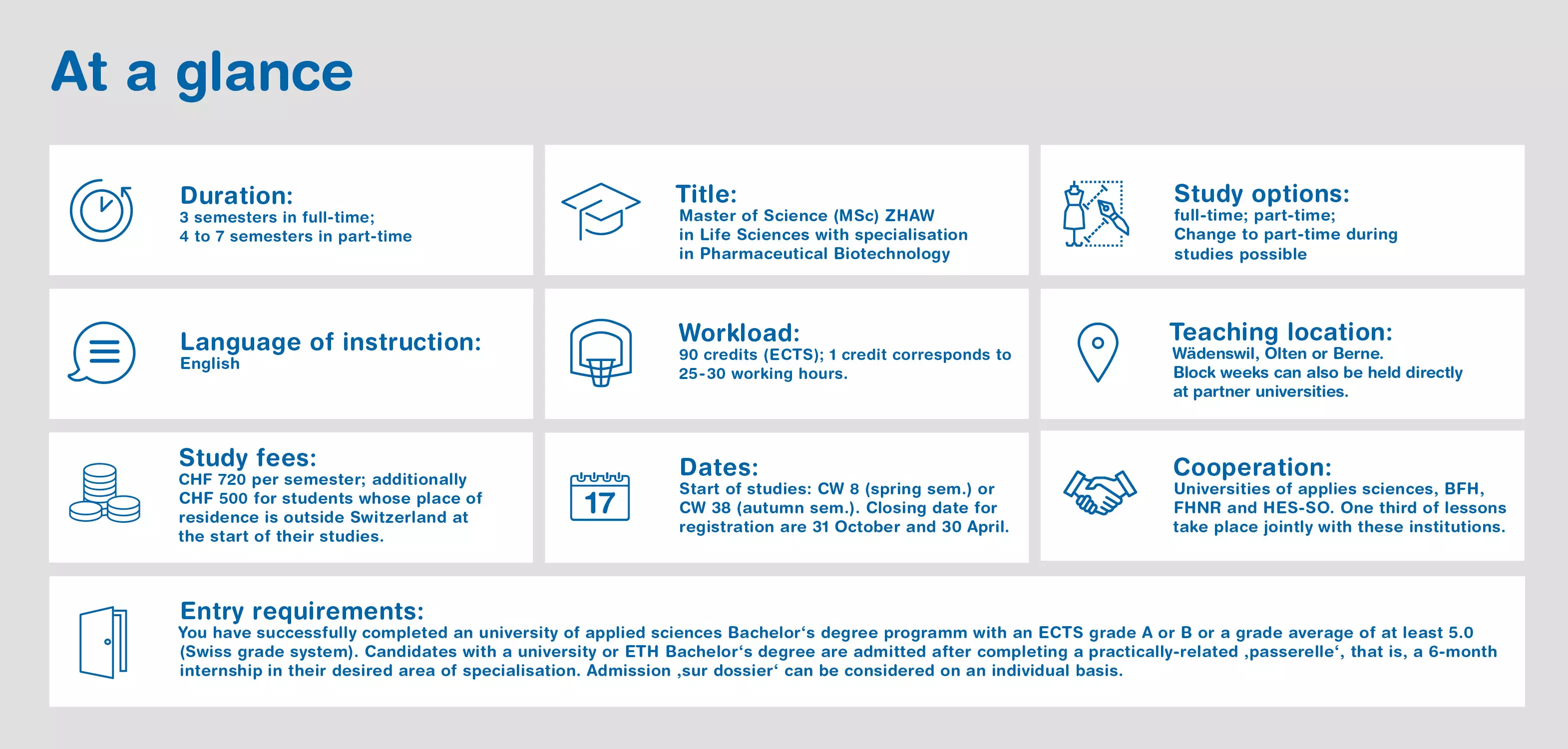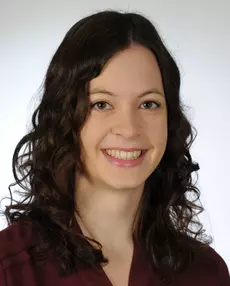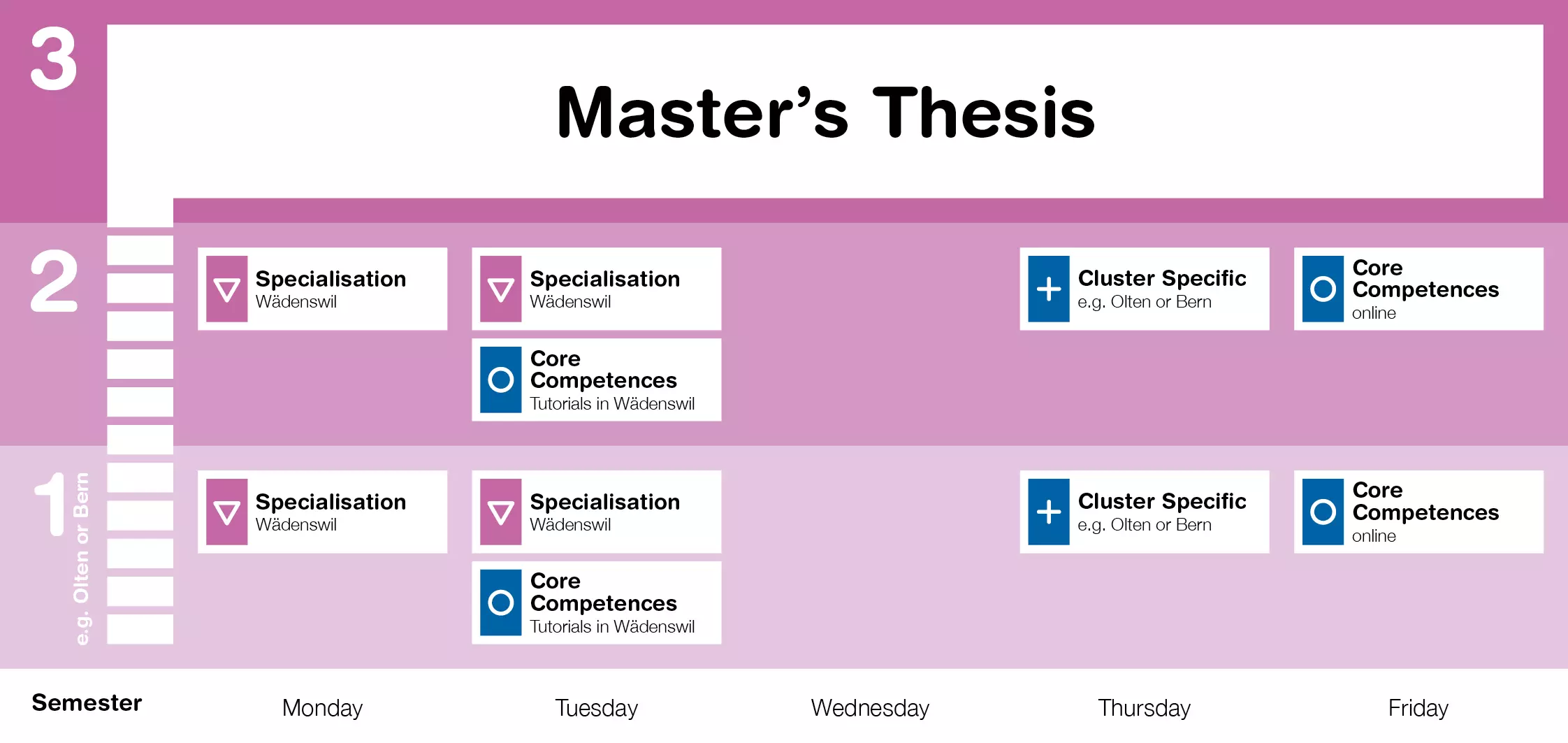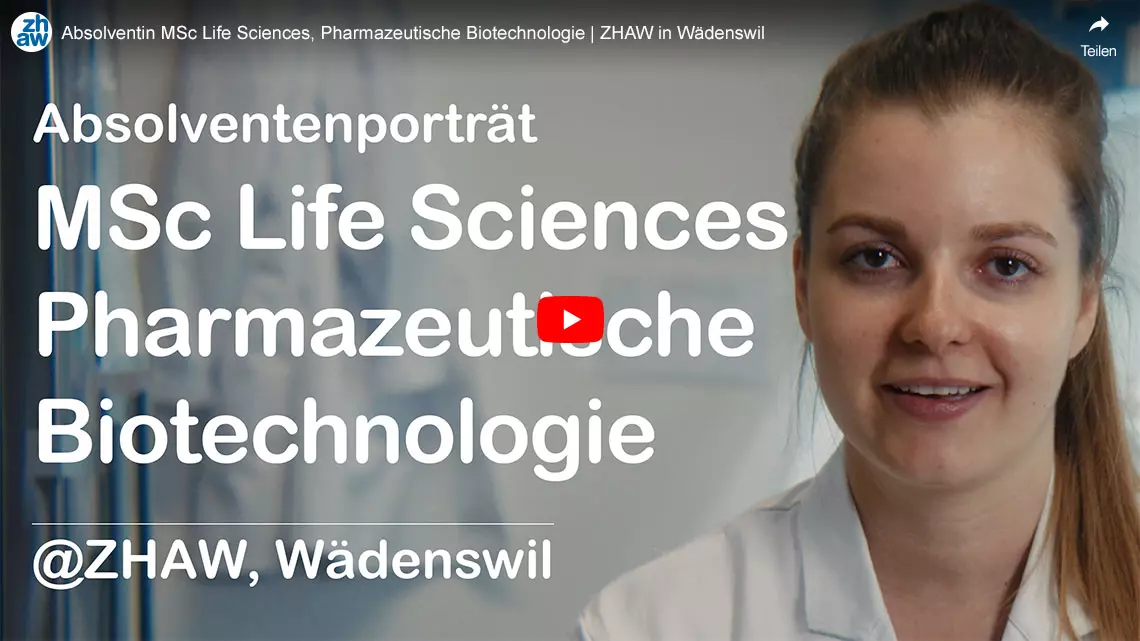Master of Science in Life Sciences - Pharmaceutical Biotechnology
Therapeutic proteins and antibodies are examples of bioengineered drugs, so-called biopharmaceuticals. They enable diseases to be treated in a completely new way. Biotechnological techniques are now essential tools for medical progress.

Why pursue a Master’s degree in Pharmaceutical Biotechnology?
From gene to medicine
Recombinant DNA technology allows drugs to be produced from genes. As a professional in pharmaceutical biotechnology, your skillset will relate to the intersection of applied research and commercial application.
The Master's programme lays the groundwork for an international career. You will be a sought-after expert in a growing market, as well as in adjacent fields such as medical diagnostics, process engineering, marketing and sales, product management, food technology, cosmetics and environmental biotechnology.

"Actually, it's only today that I realize how well the course content was aligned with reality." Read more
Joel Varonier, Senior Manager Operations mRNA, Lonza

«Studying at the ZHAW prepared me perfectly for my professional life. The many internships in biochemistry and biology are a great advantage.» Read more
Bettina Kritzer, Research Associate, Kinderspital Zürich
Your benefits
Thanks to your master’s degree in Pharmaceutical Biotechnology you will be able to
- pursue an international career path in the pharmaceutical and biotechnology industries
- play an active role in scientific and medical research and development
- contribute to solving the problems of the future through creative and innovative ideas
- work in a field where health, technology and medicine meet
- combine entrepreneurial with scientific thinking
- continue your studies and pursue a doctorate degree
- be ready and prepared for interesting and multi-faceted leadership roles in industry and public research institutions
Your background
You hold a Bachelor's degree in biotechnology, pharmacy, medical technology or related disciplines (admission with other BSc or MSc degrees may be granted depending on the specific area of expertise)
You are fascinated by research in the field of biopharmaceuticals, cell therapeutics, tissue engineering, personalized medicine, process development and optimization, bioanalytics and diagnostics, formulation and approval of pharmaceutical research, digitalization as well as the development and evaluation of new business ideas.
Your programme
You will complete a total of 90 credits (ETCS) to achieve your MSc degree.
You will design your own personal study program together with your thesis supervisor and the head of the specialization. The selected modules are recorded in your individual study agreement (planning). In addition to the modules assigned to the specialization in Pharmaceutical Biotechnology, specific modules from the specialisations of Food and Beverage Innovation, Chemistry for the Life Sciences or Applied Computational Life Sciences can be chosen.
During your Master's thesis, you will be part of a research group working on a project at one of our research institutes or with one of our industrial partners. You will have to choose the research field and group in which you intend to perform your MSc thesis already at the time when you register for your studies. Together with your thesis supervisor you will then discuss the specific topic for your Master thesis. Please find a list of topics available for master projects here.
Feel free to contact the respective group heads to discuss the possibility to join their research group as master student.
- You have the opportunity to follow our double degree program together with the Università degli Studi dell'Insubria in Varese (IT) and obtain a double degree including the ZHAW MSc of Life Sciences degree and the "Laurea Magistrale in Biotechnology for the Bio-based and Health Industry" degree from the Insubria University.
- Find information regarding your study plan: Individual study agreement - online planner
- Important dates regarding your MSc curriculum: annual planning / timetable

"Biopharmaceuticals are on the rise. Swiss companies and international corporations developing such drugs are looking for qualified specialists. Our graduates of the PBT Master's specialisation are ideally equipped for today's job market and its demanding future tasks."
Dr. Steffi Lehmann, course director at the Institute of Chemistry and Biotechnology

Your next steps
Do you have any questions?
This might also interest you
MSLS Community Centre
The Moodle learning platform for modules taught jointly with other universities of applied sciences!
Registration Master's programme
Organise your studies
MSLS Community Centre
Ready for a new chapter in your life? Apply now.
Fees, important dates, timetables and the Study App at a glance.
The Moodle learning platform for modules taught jointly with other universities of applied sciences!

